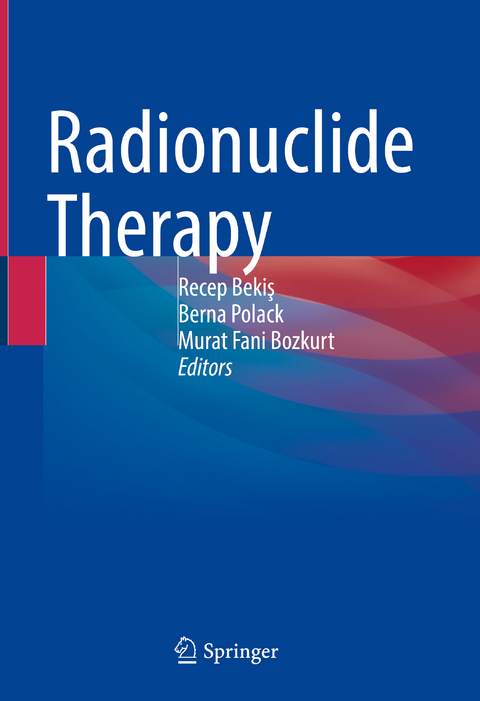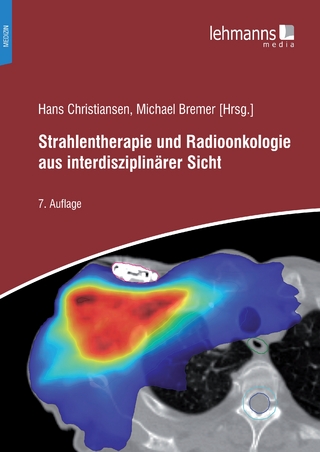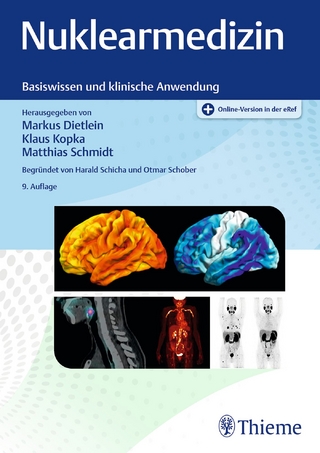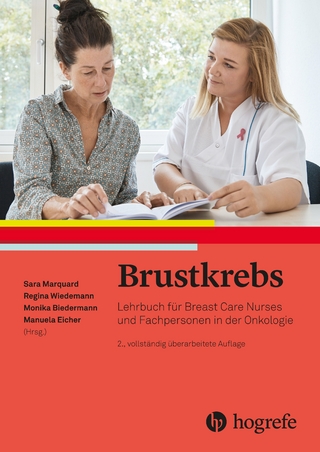
Radionuclide Therapy
Springer International Publishing (Verlag)
978-3-030-97219-6 (ISBN)
Besides standard methods such as surgery, chemotherapy, radiotherapy, and hormone therapy, newly developed biological treatments, targeted treatments, personalized treatments, external beam radiotherapy, and targeted radionuclide treatments have begun to take their place in professional practice.
Nuclear medicine, in addition to its role as a tracer of cancer, also assumes the role of treating with radioactive molecules directed to the cancer it traces. These traceable next-generation radionuclide treatments, whose efficacy and reliability have been proven and where diagnosis, treatment, and follow-up are carried out together, are increasingly included in oncology practice together with the new developed radiopharmaceuticals, ensuring a high rate of damage to cancer cells while protecting the surrounding normal tissues. Molecular cancer treatment will become more effective with individualized next-generation traceable radionuclide treatments, which will be shaped by genetic studies in the future.
Radionuclide treatments for many cancer types and benign diseases are presented by experienced nuclear medicine experts in the light of their own experience and case studies, while systemic treatments in common cancer types and side effect management of these treatments are summarized by medical oncologists.
This book will be of interest to nuclear medicine physicians as well as oncologists.
lt;p> Prof. Dr. Recep Bekis graduated from Sivas High School in 1985. Between 1985-1991, he studied Medicine at Cumhuriyet University Faculty of Medicine. He graduated from the Faculty of Medicine in 1991 and worked as a general practitioner at Ankara Oncology Hospital between 1991-1996. He attended courses and seminars in the field of oncology. In 1996, he started as an assistant in Nuclear Medicine at Dokuz Eylul University Faculty of Medicine. He became a nuclear medicine specialist in 2000, assistant professor in 2002, associate professor in 2006, and professor in 2011. He is currently working as a faculty member at Dokuz Eylül University Faculty of Medicine, Department of Nuclear Medicine. He was appointed as the head of Nuclear Medicine Department at Dokuz Eylul University Faculty of Medicine, and as an assistant chief physician.
He published 71 articles in national and international journals and 157 notifications in national and international scientific meetings. He is a chapter author in a book and chief editor in a book. He teaches at the medical faculty and health vocational high school. He is a member of professional scientific organizations and works actively in working groups in these organizations.
Prof. Dr. Berna Polack, a nuclear medicine specialist by training, has been working in molecular imaging and radioligand therapies since 1991. She became a nuclear medicine professor in 2005 at Dokuz Eylul University, Izmir, Turkey. Dr. Polack has a European Nuclear Medicine Fellowship Board.
During her carrier, she also worked as research professor and visiting professor positions at the Pittsburg University of Medical Center (July 2003- October 2004), Cornell University Weil Medical College Radiology Department (July 2013-December 2014), and Columbia University Medical Center Radiology Department (September 2016- May 2017). During her positions, she presented lectures in radiology residency training programs and attended research studies as well as imaging evaluation and multidisciplinary oncology tumor boards.
She is the first or co-author of multiple publications published in SCI and SCI-expanded medical journals and two international nuclear medicine textbook chapters. She is the editor of a book entitled "PET/CT in Oncology". Dr. Polack presented numerous congress presentations in national and international congresses. Additionally, she was awarded multiple national and international nuclear medicine research awards. She served as a director of the Turkish Nuclear Medicine Association Oncology Task Group.
After she retired from Dokuz Eylul University in 2017, Dr. Polack joined the pharmaceutical industry, focusing on innovative molecular imaging and radioligand therapies. She is currently working as Medical Director, Prostate Cancer RLT at Novartis.
Her main areas of focus are nuclear oncology, innovative molecular imaging, and radioligand therapies.
Prof. Dr Murat Fani Bozkurt completed his medical training at Hacettepe University Medical School in 1997. He had his residency training at Department of Nuclear Medicine, Hacettepe University from 1997 to 2003. Dr Bozkurt completed a reseach fellowship program on oncological PET imaging at University of Pennsylvania PET Center in Philadelphia, USA in 2003. He began to work as a staff at Department of Nuclear Medicine, Hacettepe University Faculty of Medicine in 2005.
Dr Bozkurt completed a visiting scientist program on Cardiac PET imaging at Nuclear Cardiology Department at Harvard University Brigham and Women's Hospital in 2009.
Dr Bozkurt had his associate professorship dPart-1: Basic Information. Basic properties and preparation of radiopharmaceuticals used in radionuclide therapy.- Physical Bases of Radionuclide Therapy (Biological Effects and Properties of Particle Radiation).- Fundamentals of radiation safety and dosimetric approach in radionuclide therapy applications. Part-2: Clinical Information: Thyroid Diseases. Radionuclide Therapy in Benign Thyroid Diseases: Nodular Goiter Disease.- Radionuclide Therapy in Benign Thyroid Diseases: Graves' Disease.- Radionuclide Therapy in Malignant Thyroid Diseases: Differentiated Thyroid Cancer.- Radionuclide Therapy in Malignant Thyroid Diseases: Medullary Thyroid Cancer.- Systemic Treatments and related side effects in Thyroid Cancer. Part-2: Clinical Information: Neuroendocrine Tumors. Radionuclide Therapy in Neuroendocrine Tumors. Systemic Treatments and related side effects in Neuroendocrine Tumors. Part-4: Clinical Information: Neuroectodermal Tumors. Radionuclide Therapy in Neuroectodermal Tumors.- Systemic Treatments and related side effects in Neuroectodermal Tumors. Part-5: Clinical Information: Liver Tumors. Radionuclide Therapy in Liver Tumors. Systemic Treatments and related side effects in Liver Tumors. Part-6: Clinical Information: Prostate Cancer. Radionuclide Therapy in Prostate Cancer.- Systemic Treatments and related side effects in Prostate Cancer. Part-7: Clinical Information: Bone and Joint Diseases. Radionuclide Therapy in Joint Diseases: Radiosynovectomy.- Radionuclide Pain Palliation Therapy.- Radionuclide Therapy with Alpha Emitting Agents in Bone Metastases. Part-8: Clinical Information: Lymphoproliferative Diseases. Radionuclide Therapy in Lymphoproliferative Diseases. Part-9: Radioimmunotherapy. Basics and clinical applications of radioimmunotherapy. Part-10: Intracavitary Radionuclide Therapy. Intracavitaryradionuclide applications.
| Erscheinungsdatum | 03.08.2022 |
|---|---|
| Zusatzinfo | XXIII, 387 p. 122 illus., 101 illus. in color. |
| Verlagsort | Cham |
| Sprache | englisch |
| Maße | 178 x 254 mm |
| Gewicht | 1092 g |
| Themenwelt | Medizinische Fachgebiete ► Radiologie / Bildgebende Verfahren ► Nuklearmedizin |
| Schlagworte | Hematology • Nuclear Medicine • Radiation • Radiopharmacy • Surgery |
| ISBN-10 | 3-030-97219-4 / 3030972194 |
| ISBN-13 | 978-3-030-97219-6 / 9783030972196 |
| Zustand | Neuware |
| Haben Sie eine Frage zum Produkt? |
aus dem Bereich


